- Home
- Rosamunde Pilcher
September
September Read online
ROSAMUNDE PILCHER
September
www.hodder.co.uk
COPYRIGHT
Copyright © 1990 Robin Pilcher, Fiona Pilcher,
Mark Pilcher and Philippa Imrie
First published in Great Britain in 1990 by New English Library
A division of Hodder Headline
This Hodder Paperbacks edition 2005
3
The right of Rosamunde Pilcher to be identified as the Author
of the Work has been asserted by her in accordance with the
Copyright, Designs and Patents Act 1988.
All rights reserved. No part of this publication may be reproduced, stored in a retrieval system, or transmitted, in any form or by any means without the prior written permission of the publisher, nor be otherwise circulated in any form of binding or cover other than that in which it is published and without a similar condition being imposed on the subsequent purchaser.
All characters in this publication are fictitious and any resemblance to real persons, living or dead, is purely coincidental.
A CIP catalogue record for this title is
available from the British Library
Epub ISBN 978-1-848-94116-8
Book ISBN 978-0-340-75245-6
Hodder and Stoughton Ltd
A division of Hodder Headline
338 Euston Road
London NW1 3BH
www.hodder.co.uk
CONTENTS
Title Page
Copyright
Acknowledgements
May
Chapter 1
Chapter 2
Chapter 3
June
Chapter 4
Chapter 5
Chapter 6
Chapter 7
Chapter 8
Chapter 9
Chapter 10
Chapter 11
August
Chapter 12
Chapter 13
Chapter 14
Chapter 15
Chapter 16
Chapter 17
Chapter 18
Chapter 19
Chapter 20
September
Chapter 21
Chapter 22
Chapter 23
Chapter 24
Chapter 25
Chapter 26
Chapter 27
Chapter 28
Chapter 29
Chapter 30
Chapter 31
ACKNOWLEDGEMENTS
‘The Man That Got Away’ (Harold Arlen, Ira Gershwin) © 1954 Harwin Music Corp. (Renewed). All rights reserved. Used by permission.
‘September Song’ (Maxwell Anderson, Kurt Weill) © 1938 Crawford Music Corp.; Desylva, Brown & Henderson, Inc.; Chappell & Co. Inc.; Kurt Weill Foundation for Music Inc. All rights reserved. Used by permission.
‘Bewitched’ (Lorenz Hart, Richard Rodgers) © 1941 Chappell & Co. (Renewed). All rights administered by Chappell & Co. All rights reserved. Used by permission.
MAY
1
Tuesday the Third
In early May, the summer came, at last, to Scotland. Winter had clung, with steely fingers, for far too long, refusing to relinquish its cruel grip. All through April, bitter winds had blown from the north-west, tearing the first blossom from the wild geynes, and burning brown the yellow trumpets of the early daffodils. Snow frosted the hilltops and lay deep in corries, and the farmers, despairing of fresh grazing, tractored the last of their feed out to the barren fields where lowing stock huddled in the shelter of the drystone walls.
Even the wild geese, usually gone by the end of March, were late in returning to their arctic habitats. The last of the skeins had disappeared around the middle of April, honking away north into the unknown skies, flying so high that the arrowhead formations looked no more substantial than cobwebs drifting in the wind.
And then, overnight, the fickle Highland climate relented. The wind veered around to the south, bringing with it the balmy breezes and the soft weather that the rest of the country had been enjoying for weeks, along with the scent of damp earth and growing things. The countryside turned a sweet and verdant green, the wild white cherry trees recovered from their battering, took heart, and spread their branches in a mist of snowflake petals. All at once, cottage gardens burgeoned into colour — yellow winter-flowering jasmine, purple crocus, and the deep blue of grape hyacinths. Birds sang, and the sun, for the first time since last autumn, brought a real warmth with it.
Every morning of her life, rain or shine, Violet Aird walked to the village to collect, from Mrs Ishak’s supermarket, two pints of milk, The Times, and any other small groceries and supplies needed for the sustenance of one elderly lady living on her own. Only sometimes, in the depths of winter, when the snow piled in deep drifts, and the ice became treacherous, did she eschew this exercise, on the principle that discretion was the better part of valour.
It was not an easy walk. Half a mile down the steep road, between fields which had once been the parkland of Croy, Archie Balmerino’s estate, and then the stiff half-mile climb home again. She had a car, and could perfectly well have made the journey in that, but it was one of her convictions that, as old age crept up on you, once you started to use the car for short journeys, then you were in dire danger of losing the use of your legs.
For all the long months of winter, she had had to bundle up in layers of clothing for this expedition. Thick boots, sweaters, waterproof jacket, scarf, gloves, a woollen hat pulled well down over her ears. This morning, she wore a tweed skirt and a cardigan and her head was bare. The sun lifted her spirits and made her feel energetic and young again, and being uncluttered by extraneous garments reminded her of childhood satisfaction when black woollen stockings were abandoned and one felt the pleasant, draughty sensation of cool air on bare legs.
The village shop, this morning, was busy, and she had to wait for a little to be served. She did not mind, because it meant that there was time to chat with other customers, all of whom were familiar faces; marvel at the weather; ask after somebody’s mother; watch a small boy choose, with painful deliberation, a packet of Dolly Mixtures, which he proceeded to pay for with his own money. He was not hurried. Mrs Ishak stood with gentle patience, while he made up his mind. When he had finally done this, she put the Dolly Mixtures into a little paper bag and took the money from him.
“You must not eat them all at once, or you will lose all your teeth,” she warned him. “Good morning, Mrs Aird.”
“Good morning, Mrs Ishak. And what a lovely day it is!”
“I could not believe it when I saw the sun shining.” Usually Mrs Ishak, exiled to these northern climes from the relentless sunshine of Malawi, was bundled in cardigans and kept a paraffin heater behind the counter, over which she huddled whenever there was a moment of quiet. This morning, however, she looked much happier. “I hope it will not become cold again.”
“I don’t think so. Summer is here. Oh, thank you, my milk and my paper. And Edie wants some furniture polish and a roll of paper towel. And I think I’d better take half a dozen eggs.”
“If your basket is too heavy, I can send Mr Ishak up to your house in his motorcar.”
“No, I can manage, thank you very much.”
“It is a lot of walking you are doing.”
Violet smiled. “But just think how good it is for me.”
Laden, she set off once more for home, for Pennyburn. Down the pavement, past the rows of low cottages, with windows blinking reflected sunlight, and doors standing open to the fresh warm air; then through the gates of Croy and up the hill again. This was a private road, the back driveway of the big house, and Pennyburn stood halfway up it, to one side and surrounded by steep fields. It was approached by a neat lane bordered
by clipped beech hedges, and it was always something of a relief to reach the turning and to know that one did not have to climb any further.
Violet changed her basket, which was becoming heavy, from one hand to the other, and made plans as to how she would spend the rest of her day. This was one of Edie’s mornings for helping Violet, which meant that Violet could abandon her house and instead get busy in the garden. Lately, it had been too cold for even Violet to garden, and things had become neglected. The lawn was looking tired and mossy after the long winter. Perhaps she should run her spiker over it and give it a bit of air. After that, a huge pit of carefully nurtured compost needed to be harrowed and spread over her new rose-bed. The prospect filled her with satisfying joy. She could not wait to get down to work.
Her step quickened. But then, almost at once, she saw the unfamiliar car parked outside her front door, and knew that the garden, for the moment, would have to wait. A visitor. Such irritation. Who had come to call? Who was Violet going to have to sit with and talk to, instead of being allowed to get on with her digging?
The car was a neat little Renault and betrayed no clue as to its owner. Violet went into the house through the kitchen door, and there found Edie at the tap and filling the kettle.
She dumped the basket on the table. “Who is it?” she mouthed, making pointing gestures with her forefinger.
Edie, too, kept her voice down. “Mrs Steynton. From Corriehill.”
“How long has she been here?”
“Only a moment. I told her to wait. She’s in the sitting room. She wants a wee word.” Edie resumed her normal voice. “I’m just making you both a cup of coffee. I’ll bring it in when it’s ready.”
With no excuse or possible escape route, Violet went to find her visitor. Verena Steynton stood at the window of the sun-filled sitting room, gazing out at Violet’s garden. As Violet came through the door, she turned.
“Oh, Violet, I am sorry. I feel embarrassed. I told Edie I’d come back another time, but she swore you’d be home from the village in a moment or two.”
She was a tall and slender woman around forty, and invariably immaculately and elegantly turned out. Which instantly set her apart from the other local ladies, who were, for the most part, busy country women, with neither the time nor the inclination to bother too much about their personal appearance. Verena and her husband Angus were newcomers to the neighbourhood, having lived at Corriehill for a mere ten years. Before that, Angus had worked as a stockbroker in London, but having made his pile, and tiring of the rat race, he had bought Corriehill, ten miles distant from Strathcroy, moved north with his wife and his daughter Katy, and cast about, locally, for some other, and hopefully less demanding, occupation. He had ended up taking over a run-down timber business in Relkirk, and over the years had built this up into a lucrative and thriving concern.
As for Verena, she too was something of a career woman, being heavily involved with an organisation called Scottish Country Tours. During the summer months, this company shuttled busloads of American visitors hither and yon, and arranged for them to stay, as paying guests, in a selection of well-vetted private houses. Isobel Balmerino had been roped into this exercise, and hard labour it was, too. Violet could not think of a more exhausting way of making a bit of money.
However, from the social point of view, the Steynton family had proved themselves a true asset to the community, being both friendly and unassuming, generous with their hospitality, and always willing to give time and effort to the running of fêtes, gymkhanas, and various other fund-raising events.
Even so, Violet could not begin to imagine why Verena was here.
“I’m glad you stayed. I would have been sorry to miss you. Edie’s just making us a cup of coffee.”
“I should have telephoned, but I was on my way to Relkirk and suddenly thought, much better to drop in and take my chance. On the spur of the moment. You don’t mind?”
“Not in the least,” Violet fibbed robustly. “Come and sit down. I’m afraid the fire’s not been lighted yet, but…”
“Oh, heavens, who needs a fire on a day like this? Isn’t it blissful to see the sun?”
She settled herself on the sofa and crossed her long and elegant legs. Violet, less gracefully, lowered herself into her own wide-lapped chair.
She decided to come straight to the point. “Edie said you wanted a word with me.”
“I just suddenly thought…you’d be the very person to help.”
Violet’s heart sank, envisaging some bazaar, garden-opening, or charity concert, which she was about to be asked to knit tea-cosies or sell tickets for, or to declare open.
“Help?” she said faintly.
“No. Not so much help, as give advice. You see, I’m thinking of throwing a dance.”
“A dance?”
“Yes. For Katy. She’s going to be twenty-one.”
“But how can I advise you? I haven’t done such a thing for longer than I can remember. Surely, you’d be better to ask somebody a little more up to date. Peggy Ferguson-Crombie, or Isobel, for instance?”
“It’s just that I thought…you’re so experienced. You’ve lived here longer than anybody I know. I wanted to get your reactions to the idea.”
Violet was nonplussed. Casting about for something to say, she welcomed the appearance of Edie with the coffee tray. Edie set this down on the fireside stool. “Are you wanting biscuits?” she asked.
“No, Edie, I think that will do very nicely. Thank you so much.”
Edie departed. In a moment, the vacuum cleaner could be heard roaring away upstairs.
Violet poured the coffee. “What sort of an affair did you have in mind?”
“Oh, you know. Reels and country dances.”
Violet thought that she did know. “You mean tapes on the stereo, and eightsomes in the hall?”
“No. Not like that. A really big dance. We’d do it in style. With a marquee on the lawn…”
“I hope Angus is feeling rich.”
Verena ignored this interruption. “…and a proper band for the music. We’ll use the hall, of course, but for sitting out. And the drawing room. And I’m sure Katy will want a disco for all her London friends, it seems to be the thing to do. Perhaps the dining room. We could turn it into a cave, or a grotto…”
Caves and grottoes, thought Violet. Verena had clearly been doing her homework. But then, she was an excellent organiser. Violet said mildly, “You have been laying plans.”
“And Katy can ask all her friends from the south…we’ll have to find beds for them, of course…”
“Have you spoken to Katy about your idea?”
“No, I told you. You’re the first person to know.”
“Perhaps she won’t want a dance.”
“But of course she will. She’s always loved parties.”
Violet, knowing Katy, decided that this was probably true. “And when is it to be?”
“I thought September. That’s the obvious time. Lots of people up for the shooting, and everybody still on holiday. The sixteenth might be a good date, because by then most of the younger children will have gone back to boarding school.”
“This is only May. September’s a long way off.”
“I know, but it’s never too early to fix a date and start making arrangements. I’ll have to book the marquee, and the caterer, and get invitations printed…” She came up with another pleasurable idea. “And, Violet, wouldn’t fairy lights be pretty, all the way up the drive to the house?”
It all sounded dreadfully ambitious. “It’s going to be a lot of work for you.”
“Not really. The American Invasion will be over by then, because the paying guests stop coming at the end of August. I shall be able to concentrate my mind. Do admit, Violet, it is a good idea. And just think of all the people I’ll be able to cross off my social-conscience list. We can get everybody off in one fell swoop. Including,” she added, “the Barwells.”
“I don’t think I know the Barwe
lls.”
“No, you wouldn’t. They’re business colleagues of Angus’s. We’ve been to dinner with them twice. Two evenings of jaw-aching boredom. And never asked them back, simply because we couldn’t think of anybody who could be asked to endure an evening in such excruciatingly dull company. And there are lots of others,” she remembered comfortably. “When I remind Angus about them, he’s not going to raise any difficulties about signing a few cheques.”
Violet felt a little sorry for Angus. “Who else will you ask?”
“Oh, everybody. The Millburns and the Ferguson-Crombies and the Buchanan-Wrights and old Lady Westerdale, and the Brandons. And the Staffords. All their children have grown up now, so they can be invited, too. And the Middletons should be up from Hampshire, and the Luards from Gloucestershire. We’ll make a list. I’ll pin a sheet of paper to the kitchen noticeboard, and every time I think of a new name, I’ll write it down. And you, of course, Violet. And Edmund, and Virginia, and Alexa. And the Balmerinos. Isobel will give a dinner party for me, I’m sure…”
Suddenly, it all began to sound rather fun. Violet’s concentration drifted back to the past, to forgotten occasions now remembered. One memory led to another. She said without thinking, “You should send Pandora an invitation,” and then could not imagine why she had come up with the impulsive suggestion.
“Pandora?”
“Archie Balmerino’s sister. One thinks of parties, and one automatically thinks of Pandora. But of course you never knew her.”
“But I know about her. For some reason, her name always seems to come up at dinner-party conversations. You think she would come? Surely she hasn’t been home for over twenty years?”
“That’s true. Just a silly thought. But why not give it a try? What a shot in the arm it would be for poor Archie. And if anything would bring that errant creature back to Croy, it would be the lure of a full-blown dance.”
“So you’re on my side, Violet? You think I should go ahead and do it?”

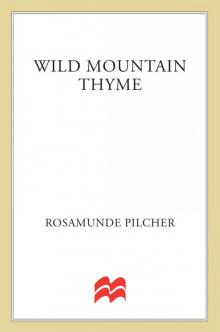 Wild Mountain Thyme
Wild Mountain Thyme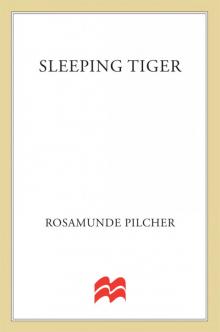 Sleeping Tiger
Sleeping Tiger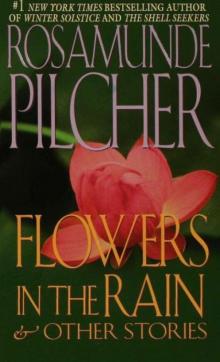 Flowers in the Rain & Other Stories
Flowers in the Rain & Other Stories September
September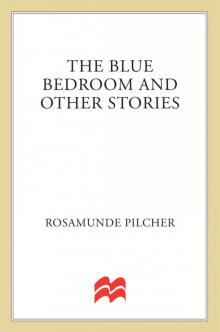 The Blue Bedroom: & Other Stories
The Blue Bedroom: & Other Stories The Carousel
The Carousel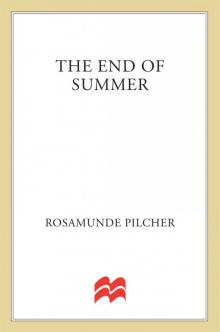 The End of Summer
The End of Summer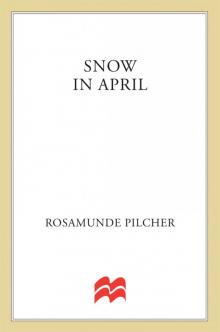 Snow in April
Snow in April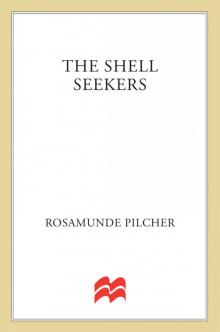 The Shell Seekers
The Shell Seekers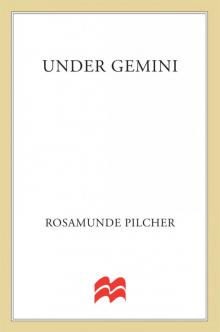 Under Gemini
Under Gemini The Empty House
The Empty House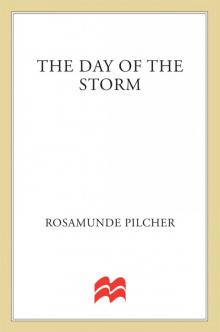 The Day of the Storm
The Day of the Storm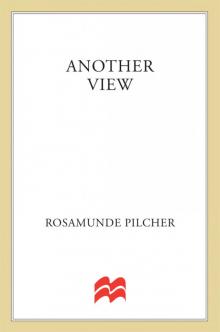 Another View
Another View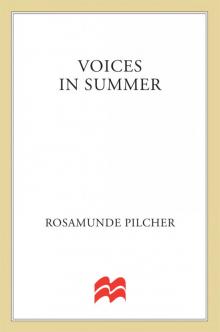 Voices in the Summer
Voices in the Summer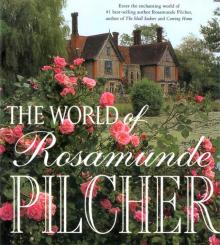 The World of Rosamunde Pilcher
The World of Rosamunde Pilcher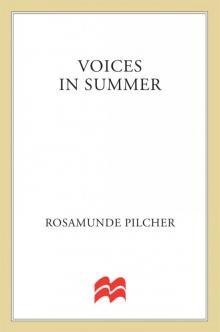 Voices In Summer
Voices In Summer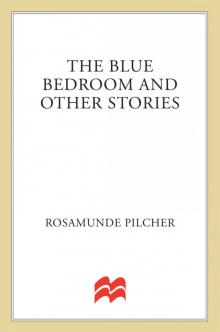 Blue Bedroom and Other Stories
Blue Bedroom and Other Stories